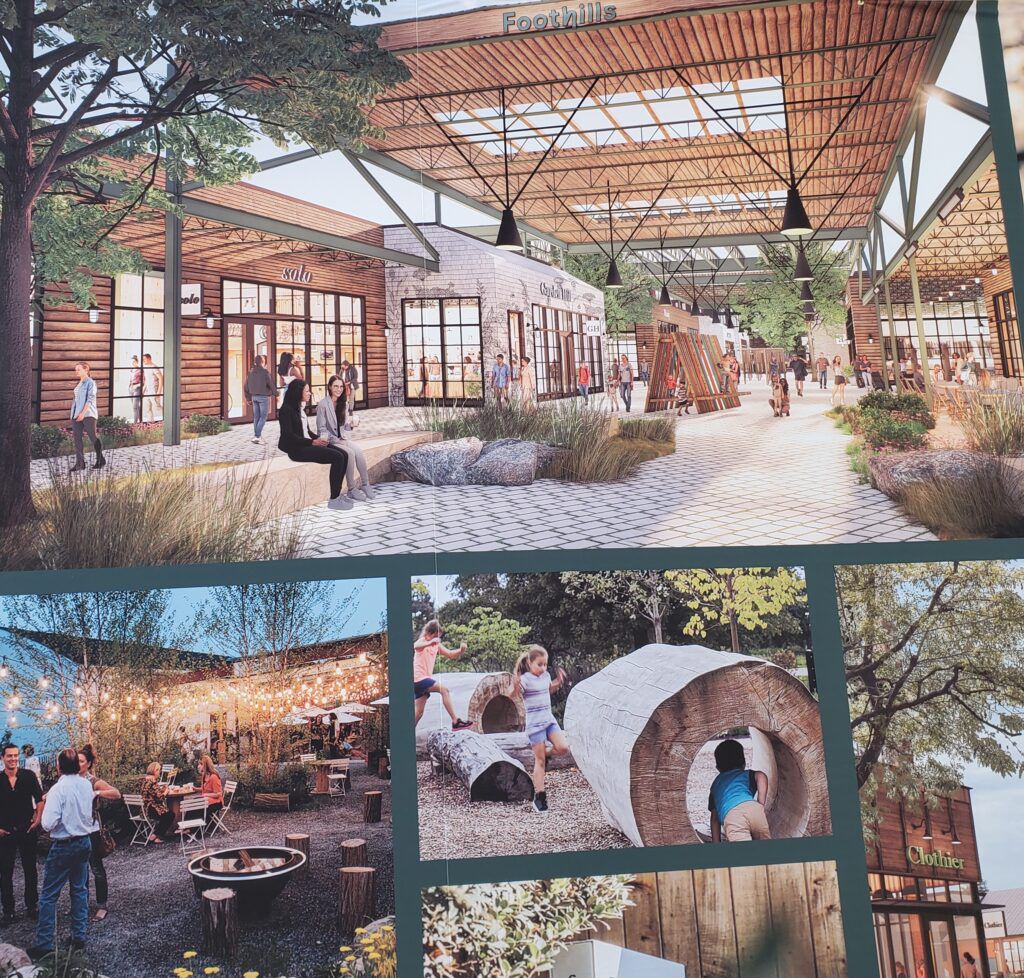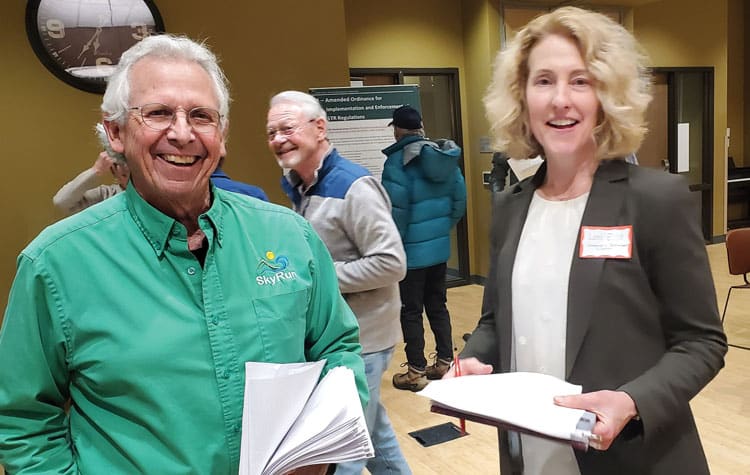Loveland planners nix rezoning of west-end block
LOVELAND — The Loveland Planning Commission voted late Monday night to deny a developer’s request to rezone a block on the city’s west side from low-density to high-density residential.
Barry Floyd, whose purchase of the historic Feed and Grain building in 2006 eventually led to its redevelopment as the Artspace project, had wanted to move four properties around Sixth Street and Douglas Avenue from low-density residential to high-density residential.
City staffer Kerri Burchett, part of the development-services team that had recommended approval of the rezoning, told commissioners Monday that Floyd had signed a tentative agreement to sell one of the properties, a medical office building at 914 W. Sixth St., to the owners of Courtyard Assisted Living for use as a memory-care center. Because that building had been vacant for nearly a decade, it lost its nonconforming use and required a zoning change if the owner wanted to renovate or sell it.
However, a parade of residents including members of a group called the West Indies, told commissioners they wanted to leave their peaceful historic neighborhood the way it is. One member of the group, Gail Randall, accused the city of engaging in illegal “spot zoning” in which one small area is rezoned to benefit a single property owner.
A few in the crowd spoke up for Floyd’s request, including former City Council members Kathi Wright and Leah Johnson, as well as Olivia Lowe, who defended Floyd as “somebody who’s trying to follow the process and is caught up in city crap in the middle of all of it.”
Planning Commission chair Lori Goebel supported the rezoning request as well, noting that investing in Loveland’s older neighborhoods is part of the city’s comprehensive plan, and commissioner Olesia Paul, noting the widespread housing shortage, added that “we are changing. We need more places to put more residents here.”
But opponents managed to sway a majority on the panel who echoed their worries and added some of their own.
“Is there any stability when you buy a house in Loveland that that house is going to stay in the zone you bought it in,” asked commission vice-chair Sarah McKeen, adding that she felt Floyd surely knew the zoning was an issue when he bought the building in 2016.
Commissioner Jeni Shaw noted that “everything around that is R1, and we need to honor that.”
The panel’s newest members, Curtis Miller and Taylor Kiser, also sided with the opponents. Miller noted that no matter what a developer promised today, the rezoning would allow him to “sell to a big investor that could build three-story Section 8 housing which is not consistent with the neighborhood. He introduced a motion that would have tabled the rezoning request for 30 to 40 days in order for neighbors and Floyd to come up with a solution, but his motion didn’t receive a second.
“It really is no longer a business area,” Kiser said, adding that approving the rezoning “would be completely ignoring all the neighbors that showed up today.”
The low-density “R1e” zoning allows single-family residences as well as several other uses including group homes, domestic-violence shelters and group homes. The high-density “R3e” zoning expands the list of allowable uses to include various types of multifamily housing, and its “adaptable use” provisions also allow property owners to convert their buildings into several other uses including medical offices and assisted-living facilities including memory-care facilities.
The planning commission’s action represents a recommendation to City Council, which could take up the rezoning request as early as June 2.
Source: BizWest




